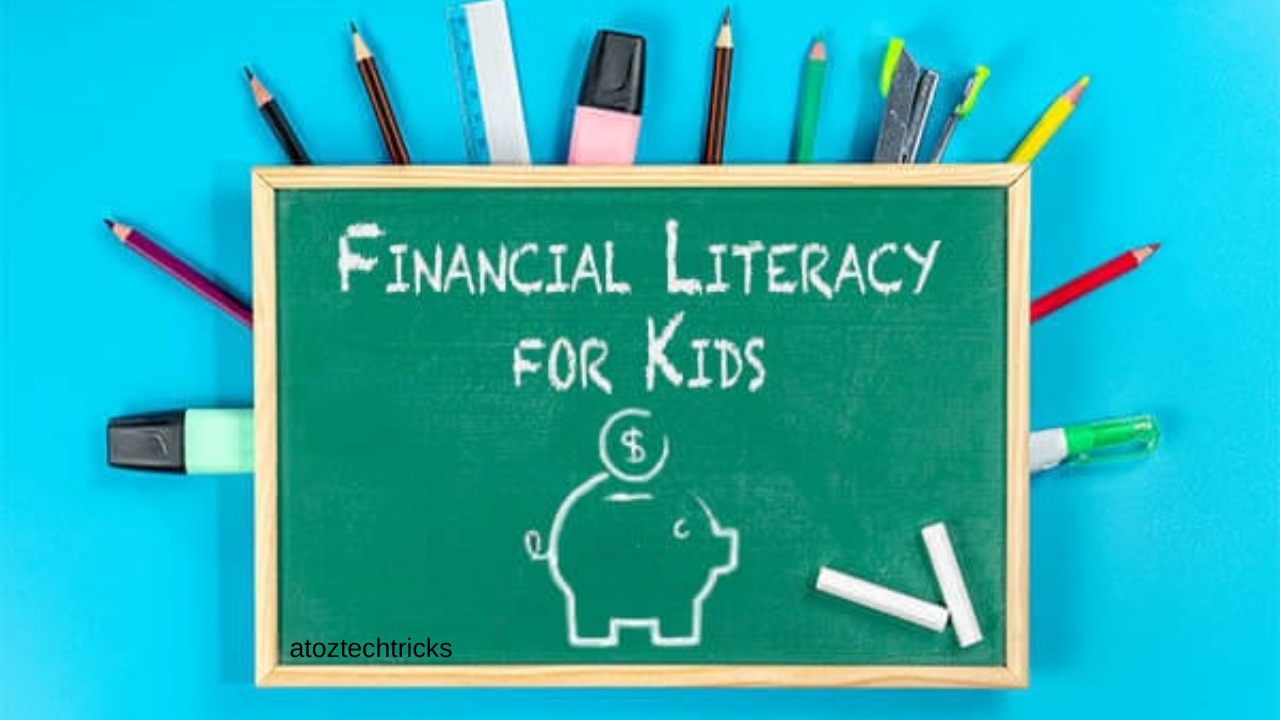Handling Unexpected Financial Situations with Children: A Comprehensive Guide
Managing finances is challenging under any circumstances, but when unexpected situations arise, it becomes even more complex, especially when children are involved. Whether it’s an unforeseen medical emergency, job loss, or an urgent repair, the financial strain can be daunting. This comprehensive guide will help you navigate these turbulent waters, ensuring you can protect your family’s well-being while effectively managing the situation.
Understanding the Impact of Financial Stress on Children
Before diving into strategies for handling financial crises, it’s essential to recognize how financial stress can affect children. Children are sensitive to their parent’s emotions and can sense when something is wrong, even if it’s not explicitly discussed. Financial stress can manifest in various ways, including:
- Emotional Distress: Children may feel anxious, insecure, or confused if they sense tension or worry in the household.
- Behavioural Changes: Stress can lead to changes in behaviour, such as acting out, withdrawing, or experiencing difficulty concentrating in school.
- Academic Challenges: The emotional impact of financial stress can affect a child’s performance and engagement in school.
Recognizing these potential effects helps in addressing them proactively and minimizing the negative impact on your children’s well-being.
College Savings: A Comprehensive Guide to Building a Future Fund
1. Assessing the Situation
The first step in managing an unexpected financial situation is to assess the extent of the problem. This involves:
- Understanding the Crisis: Clearly define the nature and scope of the financial issue. Is it a temporary setback or a long-term challenge?
- Evaluating Your Finances: Review your current financial situation, including income, expenses, savings, and debt. This will help you understand how the crisis affects your financial stability.
A thorough assessment provides a clear picture of where you stand and what steps are needed to address the situation.
2. Communicating with Your Children
Effective communication is crucial during a financial crisis. While it’s important to shield children from excessive stress, being honest and age-appropriate in your communication helps them understand the situation. Here are some tips:
- Use Age-Appropriate Language: Tailor your explanation to your child’s age and maturity level. Younger children need simple, reassuring explanations, while older children and teenagers can handle more details.
- Reassure Them: Emphasize that the family will get through this together. Reassurance helps alleviate anxiety and provides a sense of security.
- Encourage Questions: Allow your children to ask questions and express their feelings. Open dialogue fosters trust and helps them process their emotions.
Effective communication can mitigate the emotional impact of the crisis and strengthen family bonds.
3. Developing a Financial Plan
Creating a financial plan is crucial for managing unexpected situations. This plan should address both short-term and long-term needs. Here’s how to develop one:
- Prioritize Expenses: Identify essential expenses such as housing, utilities, and groceries. Focus on these priorities to ensure that basic needs are met.
- Create a Budget: Develop a budget that reflects your current financial situation. Include necessary adjustments to account for the changes brought about by the crisis.
- Explore Financial Assistance: Research available resources such as government aid, community programs, or charitable organizations that can provide temporary relief.
A well-thought-out financial plan provides structure and direction, helping you manage the crisis effectively.
4. Adjusting Family Routines
Unexpected financial situations often require adjustments to family routines. Implementing changes can help alleviate stress and maintain stability. Consider the following adjustments:
- Review and Cut Non-Essential Expenses: Temporarily eliminate or reduce discretionary spending such as dining out, entertainment, and non-essential purchases.
- Adopt a Frugal Lifestyle: Encourage family members to embrace a more frugal lifestyle. Simple changes, like cooking at home or using public transportation, can make a significant difference.
- Involve Children in Budgeting: Depending on their age, involve children in budgeting decisions. This helps them understand financial management and fosters a sense of responsibility.
Adjusting routines not only helps manage finances but also teaches valuable life skills.
5. Seeking Professional Advice
Sometimes, navigating financial challenges requires professional guidance. Consider seeking advice from:
- Financial Advisors: Financial advisors can help you develop a comprehensive plan and provide strategies for managing debt and investments.
- Credit Counselors: Credit counsellors offer advice on managing debt, negotiating with creditors, and improving credit scores.
- Legal Professionals: If the situation involves legal matters, such as bankruptcy or divorce, consult a legal professional for guidance.
Professional advice can provide clarity and expert strategies, helping you make informed decisions.
6. Exploring Alternative Income Sources
When facing a financial crisis, exploring alternative income sources can help alleviate some of the strain. Options to consider include:
- Part-Time Work: Taking on a part-time job or freelance work can provide additional income.
- Selling Unneeded Items: Declutter your home and sell items you no longer need. This can generate extra cash and reduce clutter.
- Monetizing Hobbies: Turn hobbies or skills into income streams. For example, if you’re skilled in crafting or tutoring, offer these services for a fee.
Exploring alternative income sources can provide a financial cushion and reduce the impact of the crisis.
7. Supporting Your Children Emotionally
In addition to managing finances, supporting your children emotionally is crucial during a financial crisis. Here’s how:
- Maintain Routines: Keep as much of their routine intact as possible. Familiar routines provide stability and comfort.
- Provide Reassurance: Regularly reassure your children of your love and support. Let them know that they are not alone in facing this challenge.
- Encourage Open Dialogue: Create an environment where your children feel comfortable sharing their feelings and concerns. Active listening and empathy are key.
Supporting your children emotionally helps them cope better with financial stress and maintains a positive family dynamic.
8. Planning for the Future
Once the immediate crisis is managed, focus on planning for the future to prevent similar situations. Consider the following:
- Building an Emergency Fund: Start building or replenishing an emergency fund to provide a financial cushion for future unexpected events.
- Reviewing Insurance Coverage: Ensure that you have adequate insurance coverage for health, auto, home, and life. Proper insurance can protect against significant financial setbacks.
- Setting Financial Goals: Establish short-term and long-term financial goals. Regularly review and adjust these goals based on your evolving financial situation.
Planning for the future strengthens your financial resilience and prepares you for potential challenges.

9. Teaching Financial Literacy
Use the situation as an opportunity to teach your children about financial literacy. Educating them on managing money and understanding financial concepts can empower them in the future. Consider the following:
- Basic Budgeting Skills: Teach children how to create and manage a budget, including tracking expenses and setting savings goals.
- Understanding Needs vs. Wants: Help them differentiate between essential needs and discretionary wants. This fosters responsible spending habits.
- Saving and Investing: Introduce basic concepts of saving and investing. Encourage them to save a portion of their allowance or earnings.
Teaching financial literacy equips your children with the skills needed to handle their financial challenges.
10. Reflecting and Adjusting
After navigating the crisis, take time to reflect on what worked and what could be improved. This reflection helps in:
- Identifying Strengths and Weaknesses: Assess the effectiveness of your strategies and identify areas for improvement.
- Adjusting Financial Plans: Make necessary adjustments to your financial plans based on your experiences and lessons learned.
- Strengthening Family Communication: Reflect on how communication was handled during the crisis and make improvements for future situations.
Estimating College Costs: A Comprehensive Guide for Future Students and Their Families
Reflection and adjustment contribute to better preparedness and resilience in future financial challenges.
Handling unexpected financial situations with children involves a multifaceted approach, addressing both financial and emotional needs. By assessing the situation, communicating effectively, developing a financial plan, and providing emotional support, you can navigate the crisis while minimizing its impact on your family.
Implementing strategies such as adjusting routines, seeking professional advice, exploring alternative income sources, and teaching financial literacy further strengthens your ability to manage unforeseen challenges. Planning for the future and reflecting on your experiences ensures ongoing financial resilience and stability.

Remember, facing a financial crisis is challenging, but with careful planning and support, you can overcome it and emerge stronger, providing a secure and nurturing environment for your children.




Post Comment